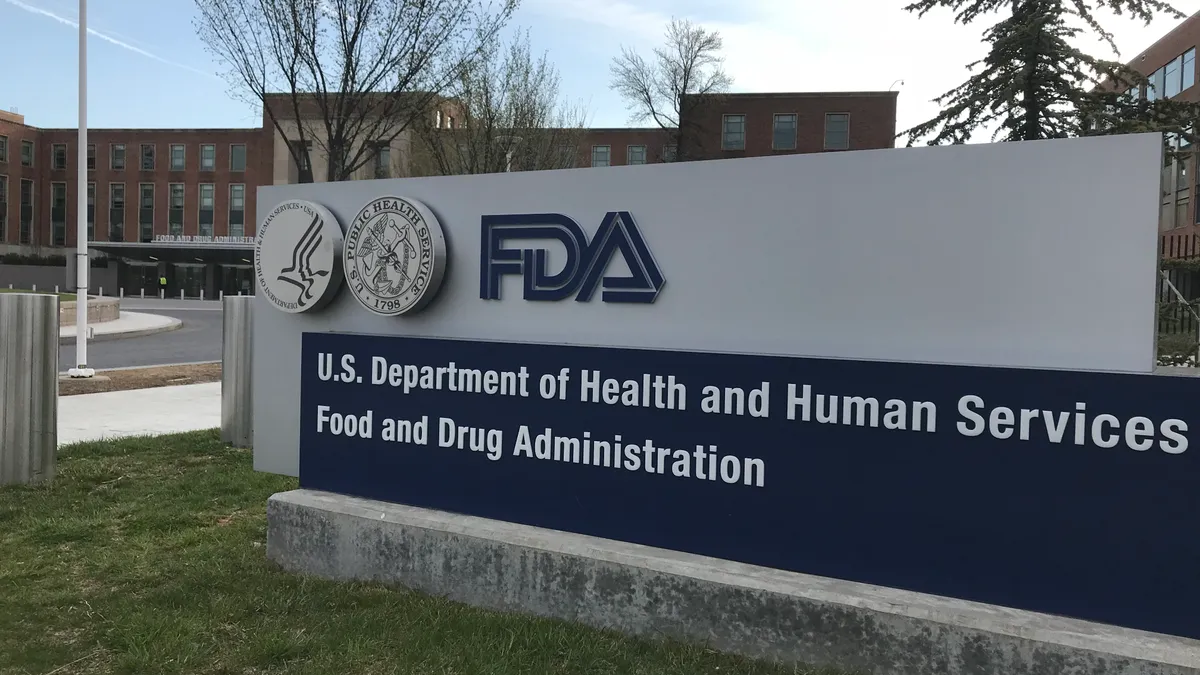UPDATE: Becton Dickinson has filed a new 510(k) submission for its Alaris infusion pump system, which has been plagued by multiple software and hardware recalls over the last year.
The submission is "intended to bring the regulatory clearance for the BD Alaris System up to date, implement updated features and address open recall issues, including through a new version of BD Alaris System software," according to a Monday announcement.
BD originally planned to file the application by the fourth quarter of 2020; however, challenges from the coronavirus pandemic forced the company to push back the timeline to the end of the second quarter or the beginning of the third quarter of this year.
CEO Tom Polen said during a February 2020 earnings call that the new 510(k) is to cover years of software changes that previously did not require the company to file a new application. However, the CEO said the FDA felt enough changes had been made over time to now require review.
The announcement coincided with software recalls issued by BD. Multiple hardware recalls for the Alaris system throughout 2020 and 2021 and a facility inspection then followed.
CFO Christopher Reidy said during a November earnings call that BD expects revenue contributions following a 510(k) approval to begin sometime in 2022.
The company did not respond to a request for comment at the time of publication.
Dive Brief:
- FDA labeled another Becton Dickinson Alaris pump recall as a Class I event on Friday. The recall impacts more than 145,000 pumps distributed in the U.S.
- CareFusion 303 Inc., a company owned by BD, issued the recall for the BD Alaris Infusion Pump Module Model 8100 on March 3 due to the risk of the keypad lifting up as a result of fluid entry. The issue can lead to buttons being unresponsive or stuck once pressed, which can cause infusions to be delayed and stopped or prevent clinicians from changing fluid and medication infusions used with the pump.
- Seventy-nine complaints have been filed regarding the issue, no deaths or injuries have been reported, according to the FDA's notice. The agency said that the recall is separate from an Alaris recall in August 2020 for a similar issue with the same pump model.
Dive Insight:
Issues associated with BD's Alaris pump systems have led to nine Class I recall notices since 2019, including five last year. One situation from a 2020 recall was labeled as a Class II event. A series of 2020 recalls followed the inspection of a San Diego unit facility in March 2020, leading FDA to issue a Form 483 that flagged areas of non-conformance with the regulations.
Continuous problems with the Alaris pump system led to the FDA requesting that BD file a new 510(k) application for review. CEO Tom Polen said during a February earnings call that the company expects to file the new 510(k) application in the late second quarter of 2021 or early third quarter.
The company estimated in a June 2020 Securities and Exchange Commission filing that remediation could cost the company $240 million. At the time of publication, BD was not available for comment on an updated remediation cost estimate or how much the company has spent on remediation thus far.
The malfunctions for Friday's recall are related to past issues with this particular Alaris pump model; however, they are not from the same issues that triggered the August 2020 recall.
"The recalls are similar in that both issues affect the same model's keypad and potential for fluid ingress which may affect the keypad functionality, but the causes are different," a BD spokesperson said in an emailed statement.
BD said in a notification that the most recent recall is for devices manufactured between Jan. 23, 2019, and Dec. 5, 2019. Any devices remediated as part of the August 2020 recall will not need to be replaced, according to the company.
While issues have not led to reports of injuries or deaths, there is still a risk for patients if devices malfunction.
"High-risk patient populations who are receiving life-sustaining infusions are at the greatest risk of harm," the company said in the March recall notice. "For these patients, delay or interruption of an infusion can cause serious injury or death."











